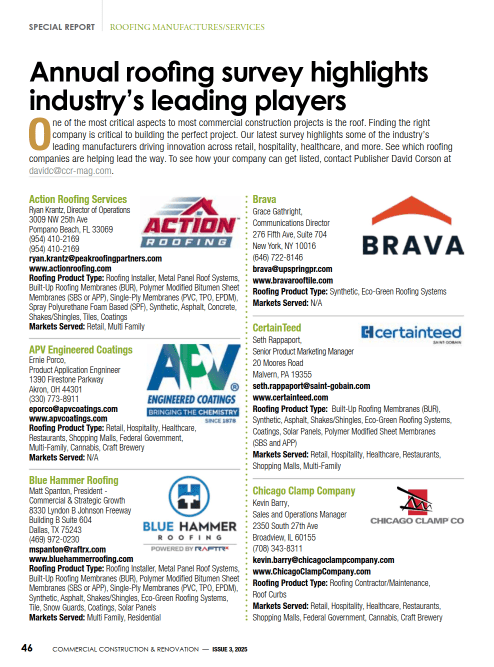Diesel exhaust fluid is essential to modern engine performance, regulatory compliance, and emissions reduction. But despite its importance, it’s often misunderstood—especially when it comes to storage and handling. One mistake, one misstep, and an entire batch of DEF can be rendered unusable. Worse yet, it can damage emissions systems, leading to unplanned downtime and costly repairs.
There are countless myths floating around about DEF and how to manage it. In this article, we’ll tackle the most common misconceptions and uncover the facts every operation should know—so your diesel exhaust fluid bulk supply stays clean, compliant, and effective.
Myth #1: DEF Is Just Another Diesel Additive
Reality: DEF isn’t a fuel additive at all. It doesn’t go into the diesel tank and never mixes with diesel fuel. DEF is stored in a separate tank and injected into the exhaust stream after combustion, where it reacts with nitrogen oxide (NOx) in the SCR system.
Treating DEF like fuel is the first misstep toward contamination. Using diesel-related tools—nozzles, containers, or pumps—can introduce oils or metal particles into the fluid, compromising its chemical balance.
Myth #2: Any Storage Tank Will Do
Reality: You can’t just use an old fuel or water tank and expect DEF purity to hold. DEF is highly reactive with certain materials—especially copper, brass, and mild steel. Even trace amounts can cause chemical degradation.
Approved storage tanks for bulk diesel exhaust fluid must be constructed from compatible materials like high-density polyethylene (HDPE), stainless steel, or specially coated composites. Not only does this preserve the quality of the fluid, it also prevents damage to your engine’s emissions system.
For those new to setting up a DEF bulk storage site, platforms like exhaustfluid.com often provide helpful insights into selecting the right tanks for long-term reliability.
Myth #3: It’s Safe to Leave DEF in Open Containers
Reality: Exposure to air, dust, and temperature extremes will quickly degrade DEF. Once opened, even a clean-looking container can become a contamination source. Airborne particles, fuel residues on gloves, or tools used for other fluids can introduce impurities without being visible.
Best practice? Always use closed-loop dispensing systems designed specifically for DEF. These systems eliminate exposure, seal after use, and prevent spills—all while extending the fluid’s shelf life.
Myth #4: DEF Doesn’t Go Bad
Reality: While not as volatile as fuel, DEF has a shelf life. Typically, it’s about 12 months when stored properly, though this can shorten significantly in high-heat environments.
The urea concentration in DEF needs to remain precise—32.5% by weight. If stored in conditions above 86°F for extended periods, the solution can degrade, changing its concentration and leading to SCR system malfunction or fault codes.
Keep your diesel exhaust fluid bulk supply in temperature-controlled or shaded areas when possible. For those in extreme climates, consider temperature-stabilized tank systems that maintain the right conditions year-round.
Myth #5: If It Looks Clean, It Is Clean
Reality: DEF can appear crystal clear while still being contaminated. It only takes microscopic amounts of metal, oil, or debris to affect performance. Contaminated DEF can cause injector clogging, incorrect NOx reduction, or complete SCR failure.
Routine inspections and sample testing are recommended, especially for large-volume storage. Use test strips or send periodic samples for analysis to confirm fluid integrity—especially if there’s been a delivery from a new supplier or changes in storage equipment.
Myth #6: Hoses and Fittings Don’t Really Matter
Reality: They matter—a lot. Just like tanks, hoses and fittings must be DEF-compatible. Brass fittings, rubber hoses, or reused fuel lines can all leach contaminants into the fluid.
All equipment in contact with DEF should be clearly labeled and dedicated to that purpose only. This includes couplers, nozzles, and even protective gloves used during refilling. A color-coded or clearly marked system prevents cross-use errors and helps maintain quality control.
Some suppliers, including Exhaustfluid, offer support in setting up proper handling systems, helping businesses avoid the common pitfalls that often go unnoticed until costly damage occurs.
Myth #7: Frequent Handling Doesn’t Impact DEF Quality
Reality: Every interaction is a chance for contamination. From delivery to dispensing, every step introduces risk if protocols aren’t followed. Even minor splashes from refilling a tank can introduce dirt or fuel residues if care isn’t taken.
To reduce risk:
- Use automated or closed systems when possible
- Train staff in handling best practices
- Avoid opening containers unnecessarily
- Keep surrounding areas clean and dry
Think of DEF handling more like pharmaceutical storage than fuel transfer—precision and purity are everything.
Myth #8: It’s Not Worth Investing in DEF Monitoring
Reality: Monitoring DEF levels and condition is worth every penny, especially for operations managing bulk def delivery schedules or high-usage environments.
Remote level sensors, temperature logs, and quality-monitoring systems help prevent runouts and quality issues. They also provide data that informs smarter ordering, reduces emergency deliveries, and ensures you’re not sitting on degraded product that can no longer be used.
If you’re running diesel exhaust fluid bulk systems across multiple sites or fleet hubs, centralizing data and automating reporting can save time and prevent costly supply interruptions.
Setting Up Clean Protocols for Long-Term Success
Creating a clean-handling culture within your operation doesn’t have to be complicated—but it does require consistency. Here’s a checklist to keep your DEF program on track:
- Label Everything: DEF tanks, hoses, and fittings should be clearly marked and used exclusively.
- Train Your Team: Everyone who touches DEF should understand contamination risks and clean handling procedures.
- Inspect Regularly: Check tanks, nozzles, and seals weekly for leaks or debris.
- Control Temperature: Store in shaded or temperature-regulated areas.
- Close Containers: Seal everything after use to prevent air and dust exposure.
- Audit Suppliers: Ensure they’re providing ISO-certified, high-purity DEF.
These small steps create long-term reliability—both in engine performance and regulatory compliance.
Final Thoughts
Diesel exhaust fluid plays a critical role in modern emissions compliance, but only if it’s handled with the care it deserves. From storage tank materials to daily refueling habits, every detail affects fluid integrity.
Avoiding contamination isn’t about paranoia—it’s about prevention. A few simple protocols can protect your equipment, reduce downtime, and ensure that your diesel exhaust fluid bulk supply supports, rather than undermines, your operations.
By partnering with knowledgeable suppliers and committing to best practices, businesses can make DEF handling a streamlined, low-risk part of their workflow—not a recurring problem.






























